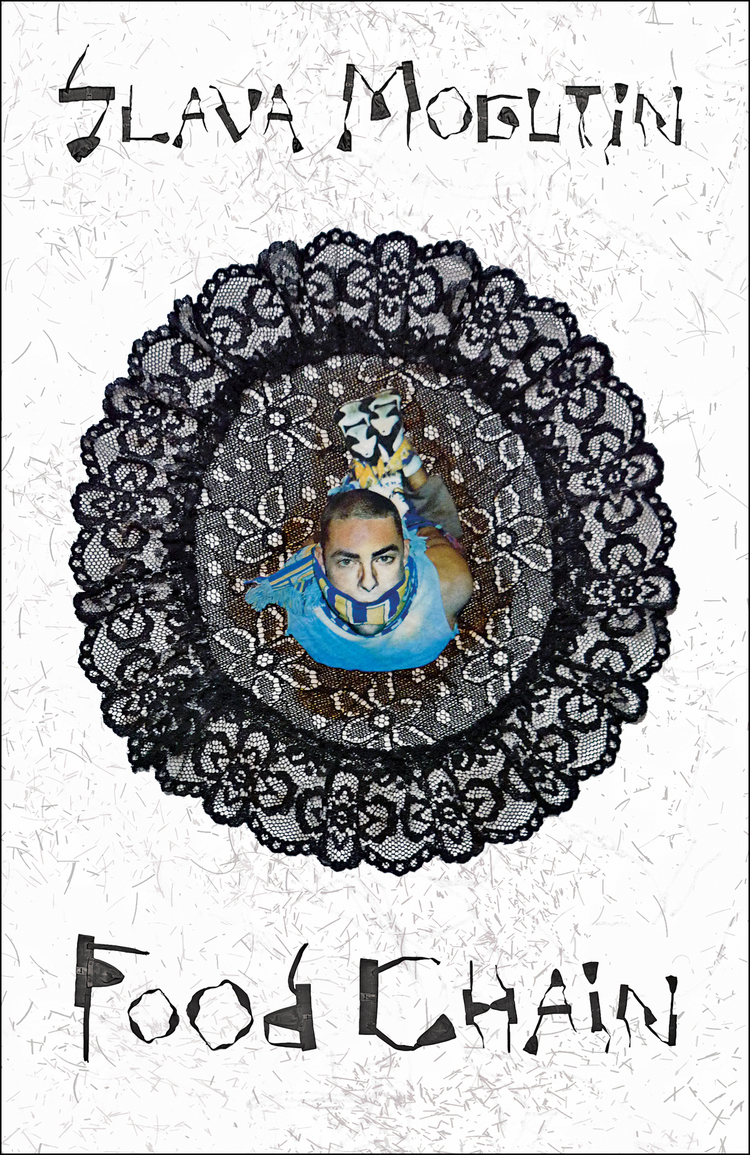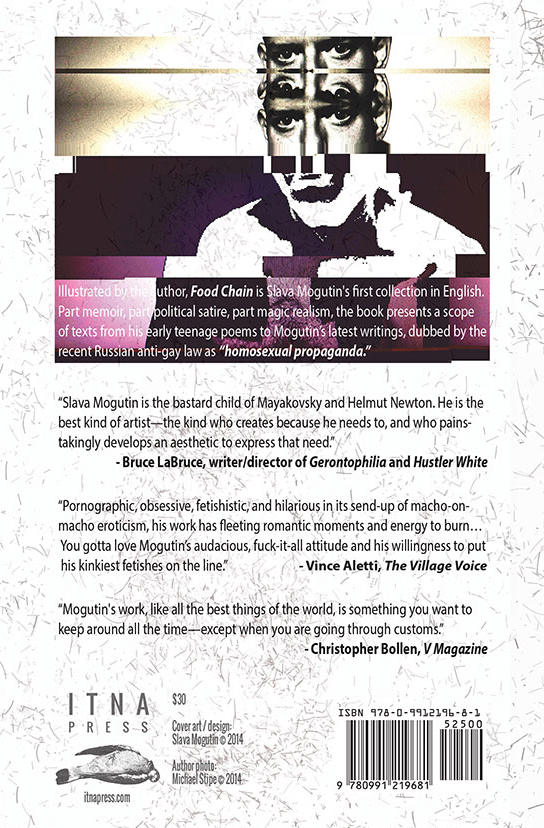Praise for Food Chain

Food Chain, ITNA Press, Brooklyn, 2014
Food Chain is a groundbreaking new art book from Slava Mogutin that explores queerness through the perspective of an outlaw queer poet.
When we first laid eyes on the cover for Slava Mogutin’s new book, Food Chain, a laundry list of kinks came to mind. “The cover image is a black hole that will suck you in,” the artist says of the provocative image, which centers a hogtied man amidst an ornate, black doily. “Or a platter ready to be consumed.” The cover is a collage of an image the artist captured in the early days of his work as a photographer, originally running as part of a bondage fashion story. The history of the image seems particularly apt for Food Chain then, the artist’s first published book in English. “I thought it was a good visual representation of my writings, which offer an insider look into the worlds of fashion, porn, and art,” he tells us, “with everything else in between.”
Food Chain is a mix of a memoir, political satire and magic realism, a first-hand account of Russia’s underground gay scene and Mogutin’s explorations of the worlds of porn, fashion and art that’s been 20 years in the making.
Food Chain, as is the name of the book, “is a blend of memoir, political satire and magic realism,” says Mogutin. “I think of it as a novel, with every chapter written in a different voice and style.” Written as a brief summary of the artist’s life, the book includes accounts of his time as a homeless hooligan poet in Moscow, his exile from Russia and his explorations of New York City “as a professional SM Master and photographer of sorts.”
Food Chain blends memoir and fiction, eroticism and nostalgia, satire, grit and poetry — a vivid rebuke to Russian authorities that would overlook his artistry and see only “gay propaganda”.
The images and poems of the book unsubtly remind us of food chains in various ways: the texts constantly mention human bodily waste; all encounters are regulated by uncontrollable desires; the characters occupy the position either of dominating eater or eaten subject as it was assigned to them via a deterministic rule of nature that is unmediated and necessary. Bodies constantly transform, and experiences and pieces of stories imply complex and often unsuccessful digestive processes, smells and feral instincts. Mogutin’s food chains are not entirely linear, though; eater and eaten easily swap places so as to short circuit the transaction and seal the metaphor of sadomasochistic love.
Who else would combine a lace doily with a half-stripped, bound and gagged tough - the obviousness being another slap to the viewer?
